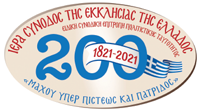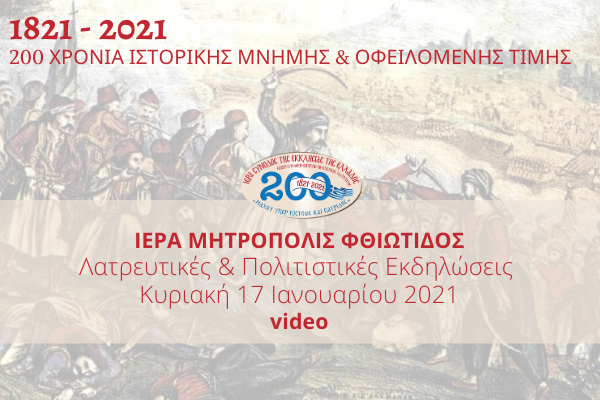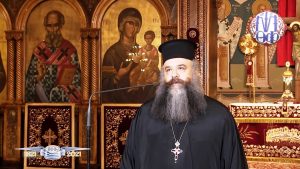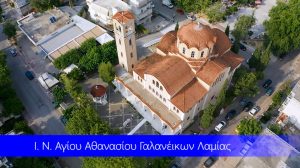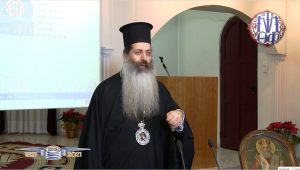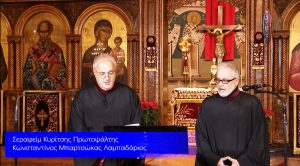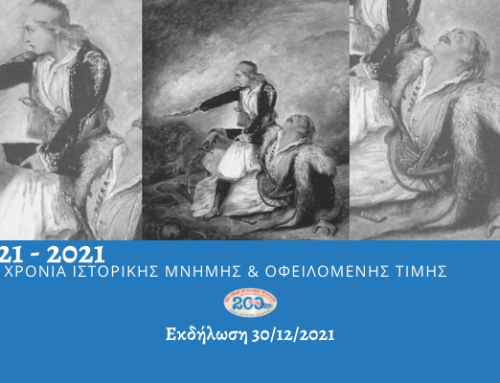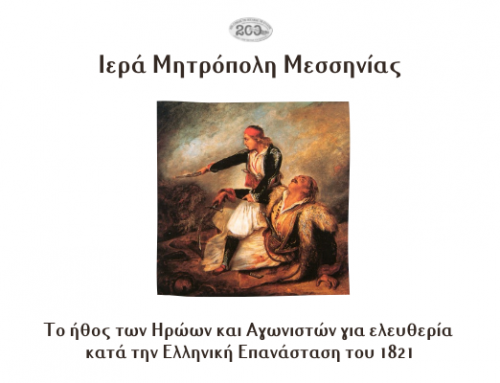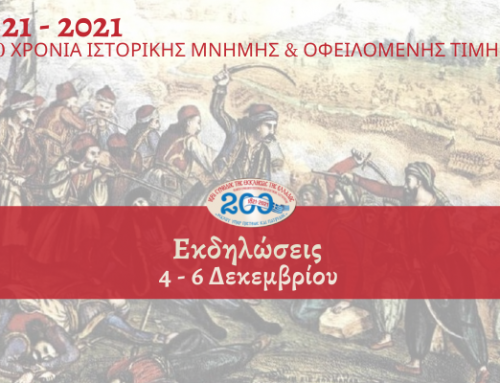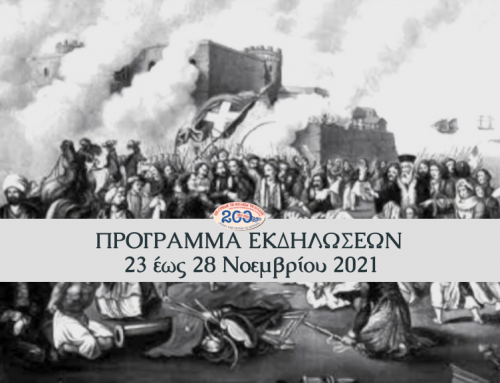Holy Metropolitanate of Phthiotis: Third planned anniversary event
On Sunday, January 17, 2021, the third planned anniversary event of the Holy Metropolitanate of Phthiotis on the occasion of the 200 years from the Revolution of 1821 was carried out online with great success, also broadcast live from the Star TV Station of Central Greece, in the Cultural Centre of the Holy Church of Saint Athanassios of Galaneika, Lamia, Greece.
In the morning, the Most Rev. Metropolitan Symeon of Phthiotis presided over an Archieratival Divine Liturgy in the Metropolitan Holy Church of the Theotokos of Lamia. Subsequently, in the Holy Church of Saint Athanassios an event took place on the topic of “Pre-revolutionary movements”.
In his opening address, the Very Rev. Archimandrite Father Anghelos Anthopoulos, Protosynkellos of the Holy Metropolitanate, inter alia stated that “as a nation of Orthodox Greeks, this year we have been deemed worthy of celebrating the bicentenary of our National ‘Palingenesia’ [i.e. Regeneration] since the 1821 Revolution, another immense adventure, in terms of time and burden and various other aspects, which our Nation coped with, despite the fact that the experts of that time thought that this would be impossible to accomplish …”
Keynote speakers in the event were the theologian Mr Ioannis Serdaris and the philologist Ms Maria Demopoulou, while the entire event was coordinated by Protopresbyter Father Demetrios Manolis, Director of the Private Office of the Metropolitan of Phthiotis.
Finally, the event was declared closed and was blessed by the fatherly presence of the Most Rev. Metropolitan Symeon of Phthiotis, who congratulated all the participants and tellingly stated that “we carry on our journey, a journey of memory, but mainly a journey towards the future: it is the journey of our anniversary events for the two-hundred years since the Revolution of 1821. A journey which, today, thanks to this beautiful event we have just attended, wishes to take us to the “why” of the Struggle, to reveal it to us, to make it apparent. What was it that inspired, enthused, vivified, made sense to our enslaved ancestors, so that, after so many centuries of servitude, they should take the big step and shake off the yoke, to a point where we may speak of a National Palingenesia, of a Free Greece, and mainly of our vision of the future?
The manner in which the event was presented offered us precisely, clearly, aptly and realistically what we need in order to understand the value of the pre-revolutionary movements, but mainly to understand that this Struggle was not a struggle of an élite, was not the struggle of a few, but the struggle of all, the struggle of the anonymous and the illustrious; it was the struggle of the people, a people which knew how to be inspired by its language, its faith, its tradition, its culture, as well as by its labour, its struggles, and the sweat of its everyday chores”.
